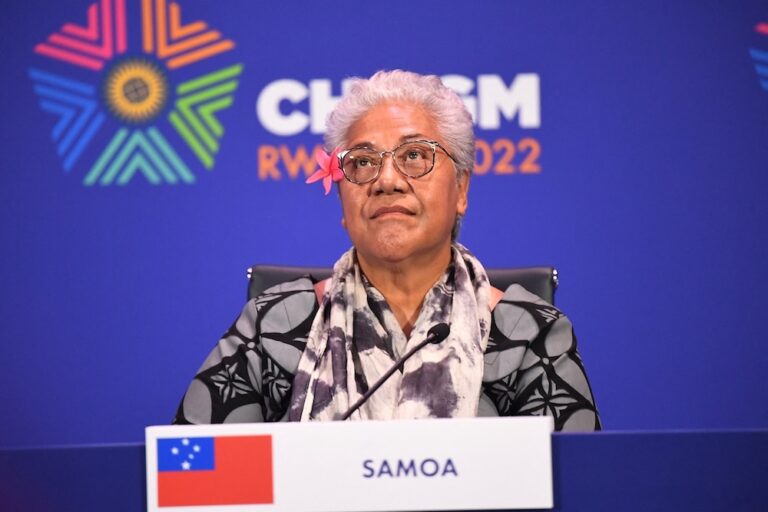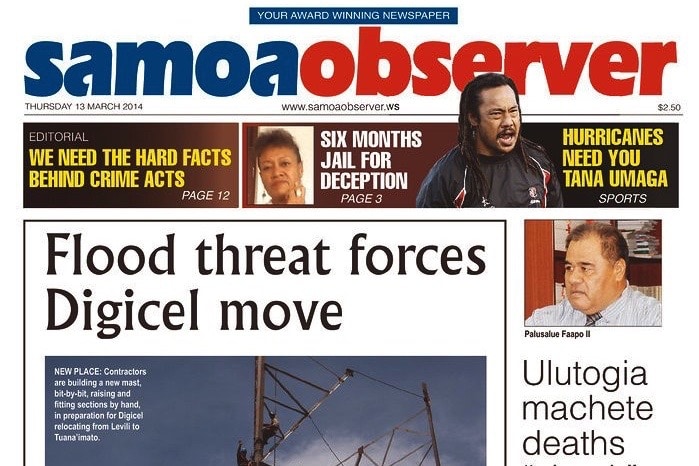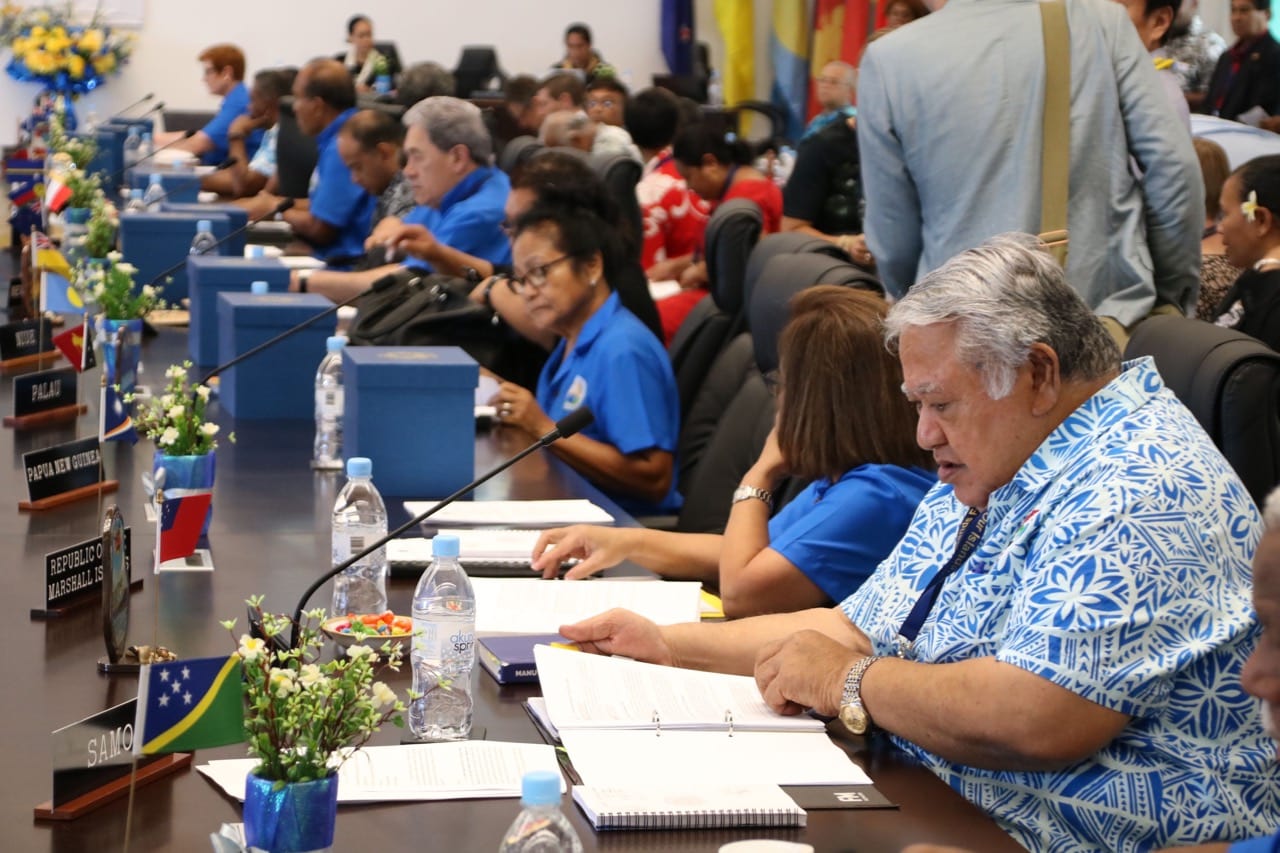(PINA/IFEX) – Samoa’s only radio station carrying independent local news has dismissed its two journalists and ended its local news bulletins. Radio Polynesia 98FM had been the only broadcast media to regularly carry news and views of parliamentary Opposition leader Tuiatua Tupua Tamasese Efi. Tuiatua is normally banned from the government-controlled national radio, 2AP, and […]
(PINA/IFEX) – Samoa’s only radio station carrying independent local news
has dismissed its two journalists and ended its local news bulletins.
Radio Polynesia 98FM had been the only broadcast media to regularly
carry news and views of parliamentary Opposition leader Tuiatua Tupua
Tamasese Efi. Tuiatua is normally banned from the government-controlled
national radio, 2AP, and television, Televise Samoa.
**Updates IFEX alert of 18 November 1997**
The independent “Tale nei” news agency reported from Apia that the owner
of Radio Polynesia, Maposua Rudolf Keil, apologised to those hurt by
erroneous news reports aired by his reporters and blamed himself and his
son, who manages the station. Maposua did not elaborate on why the blame
fell on them. “We were probably 95 per cent true but that five per cent,
it came as a shadow of a doubt, so with that we decided that we should
stay out of news, at least for a while and sort ourselves out – see what
happens and then hopefully by December 1999 we’ll be back with the local
news,” he said. “In the meantime we’re going to rely very much on the
internet service, Radio New Zealand, Radio Australia, to give you what’s
happening outside of Western Samoa.” Maposua also encouraged listeners
to read newspapers available locally for local news.
Corey Keil, who manages Radio Polynesia 98FM, said the decision followed
problems the station had following two recent news reports. One related
to the alleged linking of a Samoan member of the International Olympic
Committee (IOC) to the IOC scandal. The other was over a dispute over
ownership of land involving a village. Both reports had gone to air
“unbalanced”, he said.
In November 1997 it was revealed the Samoan Government had discussed
closing down Radio Polynesia. Health Minister Misa Telefoni Retzlaff
disclosed the discussion about revoking the licence of Radio Polynesia
98FM in an open letter he wrote as part of an ongoing dispute he was
having with then Deputy Prime Minister (and current prime minister)
Tuilaepa Sailele Malielegaoi. This followed Radio Polynesia having
carried out interviews with Tuiatua and the leaders of anti-government
protests over the cost of living and alleged corruption.
Maposua told “Tale nei” that the two reporters he fired last week were
not to blame. “Tale nei” said Maposua, a noted critic of government,
especially since the passing of the Value Added Goods and Services Tax
in 1994, signaled a change of support. He thanked the government for
granting him a business license to operate a private radio station back
in 1989 after “battling the previous government” led by Tuiatua to get
one.
Background Information
The government-run national radio and TV services are heavily controlled
by the government. The opposition’s access to the government media is
severely restricted. The award-winning “Samoa Observer” is Samoa’s only
daily newspaper and main independent news voice.
Independent news media and journalists have faced increasing pressure
after highlighting reports alleging growing corruption and abuse of
public office.
The “Samoa Observer” printing plant was burnt down under highly
suspicious circumstances; publisher Savea Sano Malifa was assaulted by
relatives of a government minister; death threats were made to Malifa
and his family; government advertising was withdrawn from the newspaper;
threats were made to impose newspaper licensing; and a law was
introduced requiring journalists in libel actions to reveal their
sources.
Malifa and the “Observer” continue to face mounting legal costs because
of criminal and civil libel actions against them over their reports and
a letter published in the paper. The actions have been mounted by former
Prime Minister Tofilau Eti Alesana and other government ministers. The
government has said it will provide public money to pay the legal costs
of Tofilau and other ministers and government leaders who sue for libel
(see IFEX alerts).


